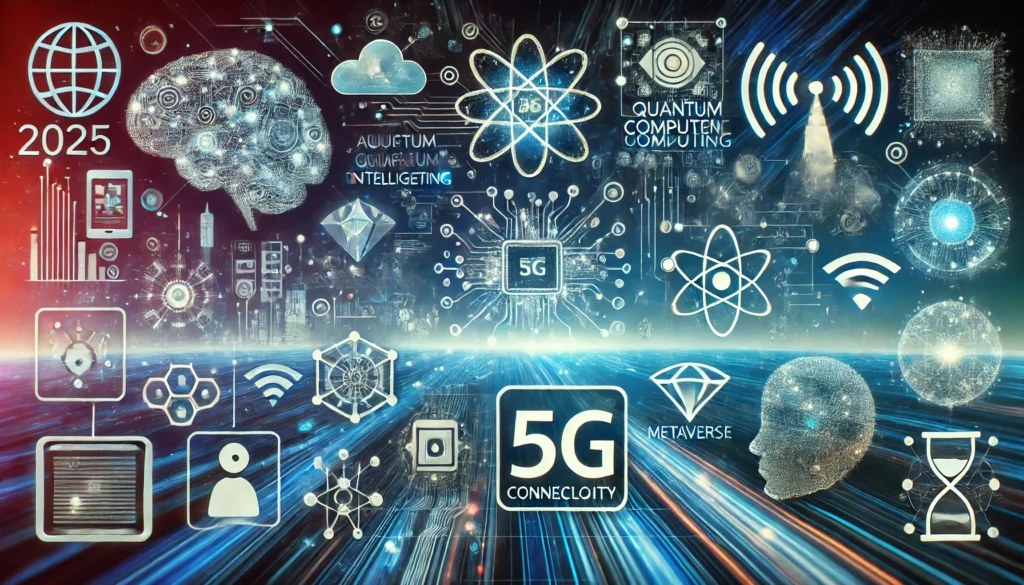The way we live, work, and interact with the world around us is constantly evolving. As we approach 2025, key trends are emerging in lifestyle choices that reflect a blend of technological advancements, a growing focus on sustainability, and an increasing desire for personal well-being. From smart homes and sustainable living to digital well-being and wellness, these trends are set to transform the way we experience everyday life. Here are some of the top lifestyle trends we can expect in the near future.
1. Smart Homes and Automation
As technology continues to advance, our homes are becoming smarter and more connected. By 2025, smart home technology will be an integral part of daily life, enabling greater convenience, energy efficiency, and security.
- Voice-Controlled Homes: Virtual assistants like Alexa, Google Assistant, and Siri will become even more sophisticated, controlling everything from lights and thermostats to kitchen appliances and security systems. These voice-activated systems will allow people to interact with their homes effortlessly.
- Home Automation: AI-powered systems will monitor energy usage, optimize heating and cooling, and even anticipate the needs of the inhabitants, creating a fully automated, eco-friendly home environment.
2. Sustainable Living
Sustainability will continue to be a central theme in 2025 as people become increasingly conscious of the impact they have on the environment. From eco-friendly products to sustainable fashion, our daily choices will reflect our desire to reduce our carbon footprint.
- Eco-Friendly Products: Sustainable consumer goods, including clothing, household products, and food packaging, will dominate the market. People will opt for brands that prioritize the use of renewable resources, biodegradable materials, and energy-efficient manufacturing processes.
- Minimalism and Conscious Consumerism: More individuals will embrace minimalist lifestyles, focusing on purchasing only what is necessary and opting for items that are durable, high-quality, and eco-friendly. This shift will reduce waste and encourage mindful consumption.
3. Health and Wellness Technology
By 2025, technology will play an even more significant role in health and wellness, with innovations in fitness, mental health, and overall well-being.
- Wearable Fitness Technology: Fitness trackers, smartwatches, and health-monitoring devices will be an essential part of people’s daily routines. These devices will provide real-time feedback on physical activity, sleep patterns, heart rate, and even stress levels, helping individuals optimize their health and fitness goals.
- Mental Health and Digital Wellness: As mental health awareness grows, digital wellness tools like meditation apps, virtual therapy, and mindfulness platforms will help individuals manage stress, anxiety, and overall mental well-being. These apps will use AI to offer personalized recommendations and track emotional health over time.
4. The Rise of Remote Work and Digital Nomadism
The COVID-19 pandemic accelerated the shift to remote work, and by 2025, remote work will be a permanent fixture of many people’s professional lives. This trend will influence how we design our homes, socialize, and balance work-life commitments.
- Flexible Workspaces: People will continue to set up home offices with ergonomic furniture, high-speed internet, and tech tools to enhance productivity. Co-working spaces and virtual offices will become increasingly popular, offering flexibility and collaboration without the need for physical presence in an office.
- Digital Nomad Lifestyle: The rise of remote work will also fuel the digital nomad lifestyle. People will travel the world while working from their laptops, using technology to stay connected and maintain productivity. Locations known for affordable living and strong Wi-Fi infrastructure, such as Bali and Lisbon, will become hotspots for remote workers.
5. Sustainable Fashion
As consumers demand more sustainable options, the fashion industry will continue to evolve, embracing eco-friendly practices and materials. By 2025, sustainability will be at the forefront of fashion trends.
- Circular Fashion: Fashion brands will move toward circular fashion models, which focus on recycling, upcycling, and repurposing old clothes. This reduces textile waste and supports sustainable production methods.
- Ethical and Transparent Brands: More fashion companies will embrace transparency, sharing details about their production processes, sourcing, and labor conditions. Consumers will demand more ethical and eco-conscious fashion choices, and brands that align with these values will thrive.
6. Plant-Based and Sustainable Diets
As environmental concerns and health awareness grow, plant-based diets will become even more mainstream by 2025. People will continue to embrace plant-based food choices as part of their commitment to living a healthier, more sustainable lifestyle.
- Plant-Based Eating: Vegetarian, vegan, and flexitarian diets will become more popular, as individuals reduce their reliance on animal products. Plant-based alternatives, such as Beyond Meat and Impossible Foods, will continue to evolve, offering more delicious and accessible options.
- Sustainable Food Practices: Urban farming, community gardens, and the farm-to-table movement will gain traction as people seek more sustainable ways to grow and consume food. Reducing food waste will also become a significant priority, with more people embracing zero-waste cooking practices.
7. Digital Well-Being and Mindful Tech Usage
In an increasingly connected world, the focus on digital well-being will become a major priority by 2025. People will adopt healthier relationships with technology, making efforts to disconnect and focus on their overall well-being.
- Screen Time Management: As technology continues to be an integral part of daily life, people will use apps to track and limit screen time, setting boundaries for when to check social media or respond to work emails. This will help maintain a healthier work-life balance.
- Mindfulness in Tech Use: Virtual reality (VR) and augmented reality (AR) will be incorporated into mindfulness and meditation practices, offering immersive experiences that help people relax, de-stress, and focus on their mental health.
8. Sustainable Travel
The travel industry will undergo significant changes as more people choose eco-friendly, sustainable travel options. By 2025, travel will focus on minimizing environmental impact while promoting cultural awareness and responsible tourism.
- Eco-Friendly Transportation: Electric vehicles (EVs) and sustainable airlines will become more prevalent, as people look for green alternatives when traveling. Eco-conscious travelers will opt for trains, buses, and electric cars over flights and long-distance car rides.
- Sustainable Destinations: Sustainable tourism will focus on preserving natural resources and supporting local communities. Tourists will seek destinations that promote environmental conservation and sustainable practices, from eco-lodges to nature reserves.
Conclusion
The lifestyle trends of 2025 will be defined by a deepening commitment to sustainability, a reliance on technology for convenience and well-being, and a growing awareness of personal health and wellness. From eco-friendly products and sustainable fashion to digital wellness tools and smart homes, the future of lifestyle choices will be shaped by both innovation and a desire to live in harmony with the planet. By embracing these trends, individuals can lead more mindful, healthy, and responsible lives in the years to come.



